Feel the happiness & the fragrance
“Science is the contemporary language of mysticism,” claims Dr Joe Dispenza from the US. It sounds almost as though he wants to replace God with machines and medication. In actual fact, what he means is something quite different: it’s about putting an end to the ancient opposition between what spiritual traditions have been teaching and practising for hundreds of years and what is scientifically explainable, and therefore what is “true” or “real”.
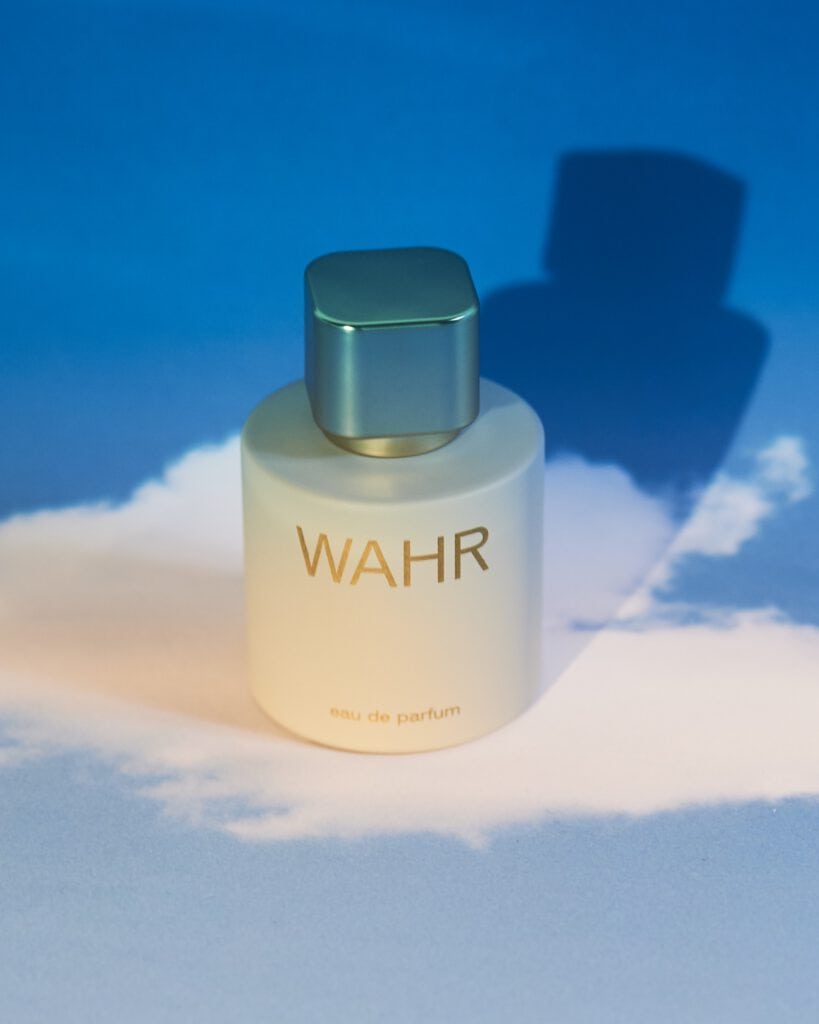
Thanks to findings in neuroscience, consciousness research and medicine, phenomena that until now had fallen into the category of esotericism have become scientifically representable. For example, it’s been proven that we’re able to change the material structure of our brains through meditation, and that the question of whether hereditary cancer genes are activated or not largely depends on the mental and emotional state of the person carrying them. Dr Dispenza himself has developed meditation programmes to activate self-healing mechanisms that are used by thousands of people around the world, and whose results are now the subject of scientific studies.
When this development first began, the quantum physics understanding was that consciousness isn’t an accidental by-product of matter, but rather the opposite, that consciousness only results from matter. Something similar takes place on a molecular level in our bodies: thoughts generate feelings, and feelings become chemical and energetic messenger material that has a huge impact on our health and our happiness. Based on this idea, anyone who masters their thoughts becomes the author of their own story. So it’s no wonder that even in the West, more and more people are becoming fascinated by meditation, yoga and Buddhism – traditions that fortunately put the key to happiness in the hands of the individual rather than in those of the sometimes blessing, sometimes punishing God above. Yet even Christianity once had mysterious traditions that are gradually being rediscovered.
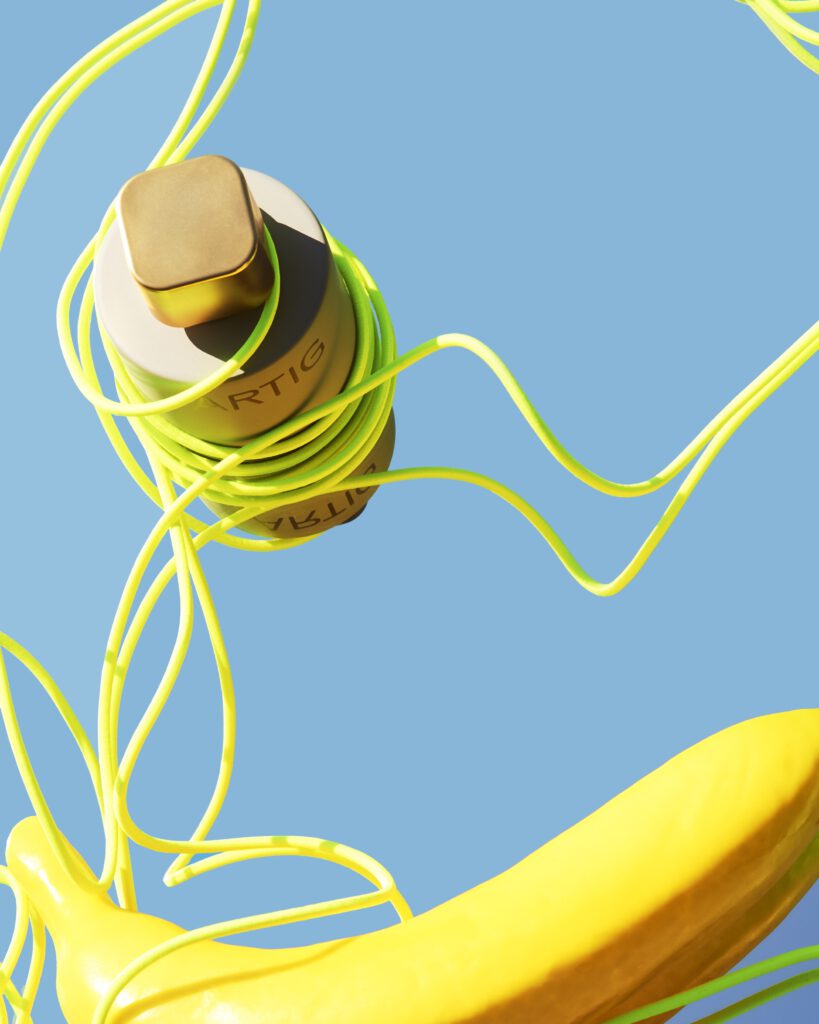
There have also been spectacular findings in the area of smell over the last few years. While good old aromatherapy still often means rank lavender oil in a dusty fragrance lamp, aromachology now looks at what happens in the brain when it’s triggered by scent molecules. Anne Churchill, an in-house researcher at perfume manufacturers Givaudan, explains more on this on coveteur.com: “Over the past 20 to 30 years there’s been an enormous increase in the amount of knowledge in this area, particularly related to improvements in the technology available to actually measure brain responses or other physiological responses [via] brain scanning equipment and things like facial recognition equipment, the ability to measure heart rate accurately, and skin conductance.”
Givaudan was therefore able to launch three collections of fragrance technologies that can be used by perfume companies to create what are known as functional fragrances. The MoodScentz collection, for example, is intended to promote relaxation and well-being.
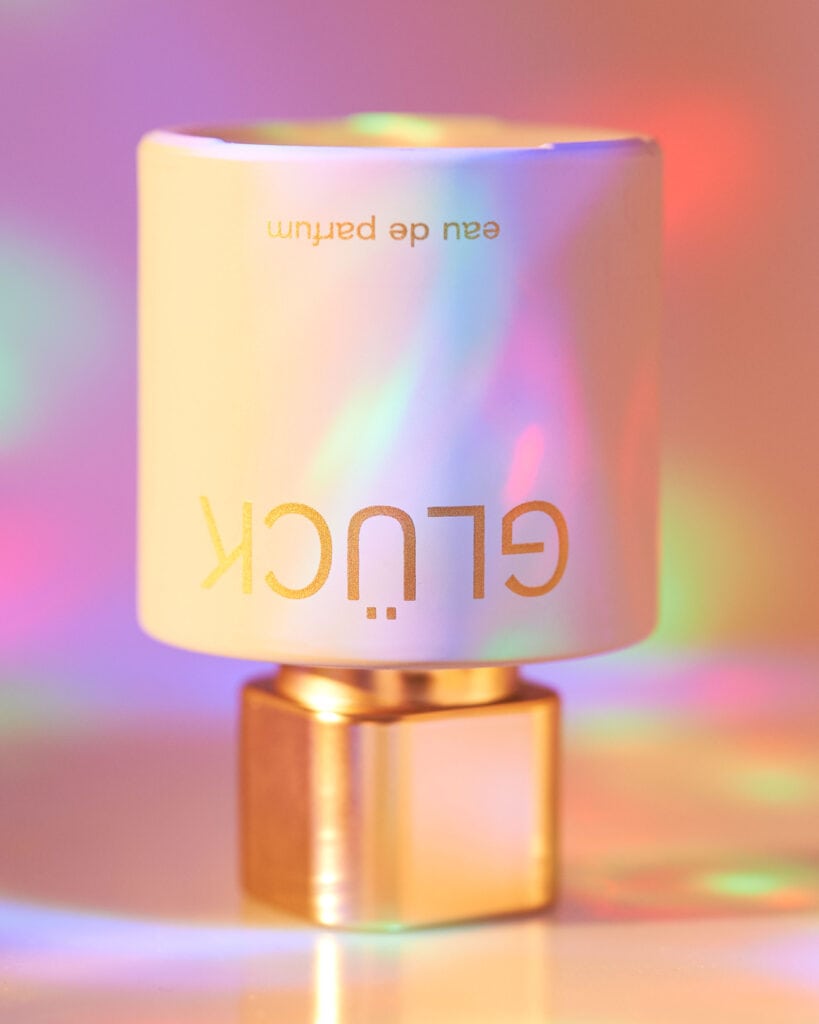
We’re now seeing an influx of totally new products whose goal is to have a targeted and scientifically founded influence on our mood, our concentration levels and our sleep, and therefore to integrate a new spirituality into our lives. Sound a bit too ambitious? Anyone doubting the power of smell should be reminded of the mind-altering effect of a full baby’s nappy on a long-haul flight or a sweaty cheese left in the bin in glaring sunshine. Why shouldn’t it work just as well the other way round?
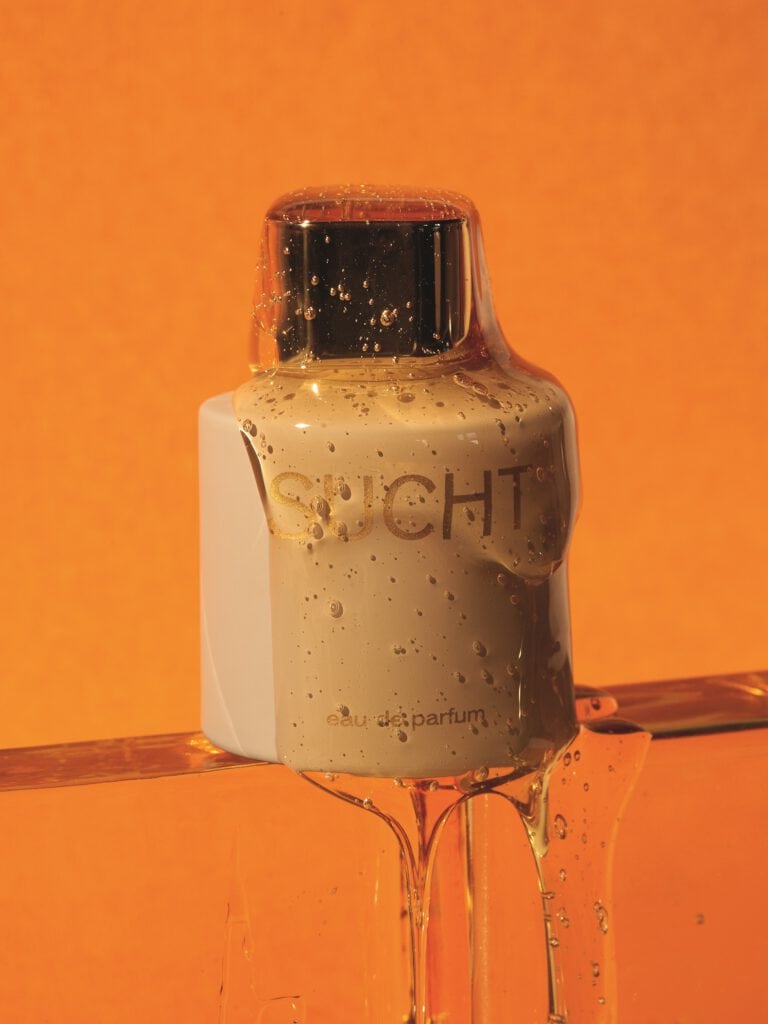
The Nue Co., for example, actually sells supplements for the skin, hair and gut, but has now expanded its range to include a few fragrances. Mind Energy has shown in studies that 86% of subjects felt they had more focus and 76% felt their productivity levels improved. Forest Lungs brings the woods into your home office and your lungs thanks to patented phytoncides, a molecular compound produced by trees.
London brand DOSE uses the slogan “Taking control of your moods” to promote their mood-boosting fragrances. Hiit Me Up energises and motivates you for your workout, while Smells Like Yoga soothes and relaxes. You’ll learn more about the philosophy behind the brand on the brand’s own podcast Hacking Happines
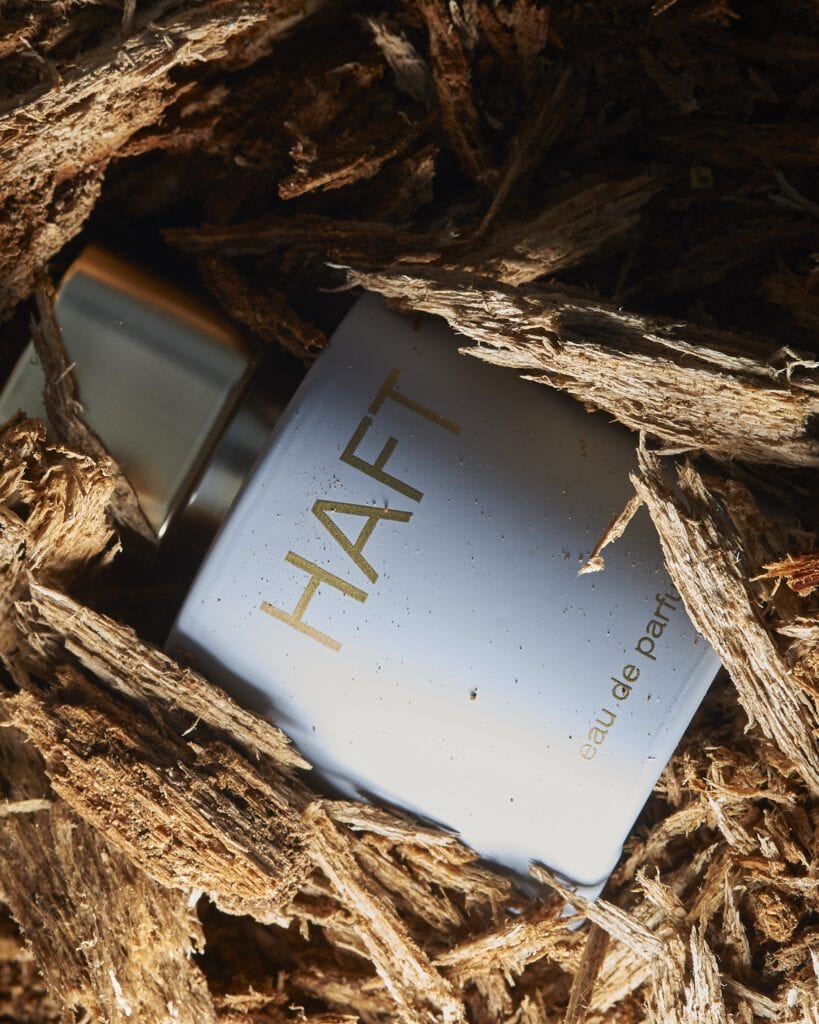
Adidas has also caught wind of the trend, although is a bit more performance-orientated with its Culture of Sport collection: fragrances including CHRG, UPLFT and STRK are intended to stimulate the same parts of the brain as sport in order to increase “the desire and the ability to train”.
Vera Portz and Marion Lange from Hamburg-based Mavemade are taking a playfully different approach: using nine fragrances with names like Eifer (vigour), Artig (good) and Glück (happiness), you can mix and match the words to create fragrance layers, like Wunder-Selig (wonder-bliss) or Glück-Sucht (happiness-addict), and thereby strengthen or hack your current mood.
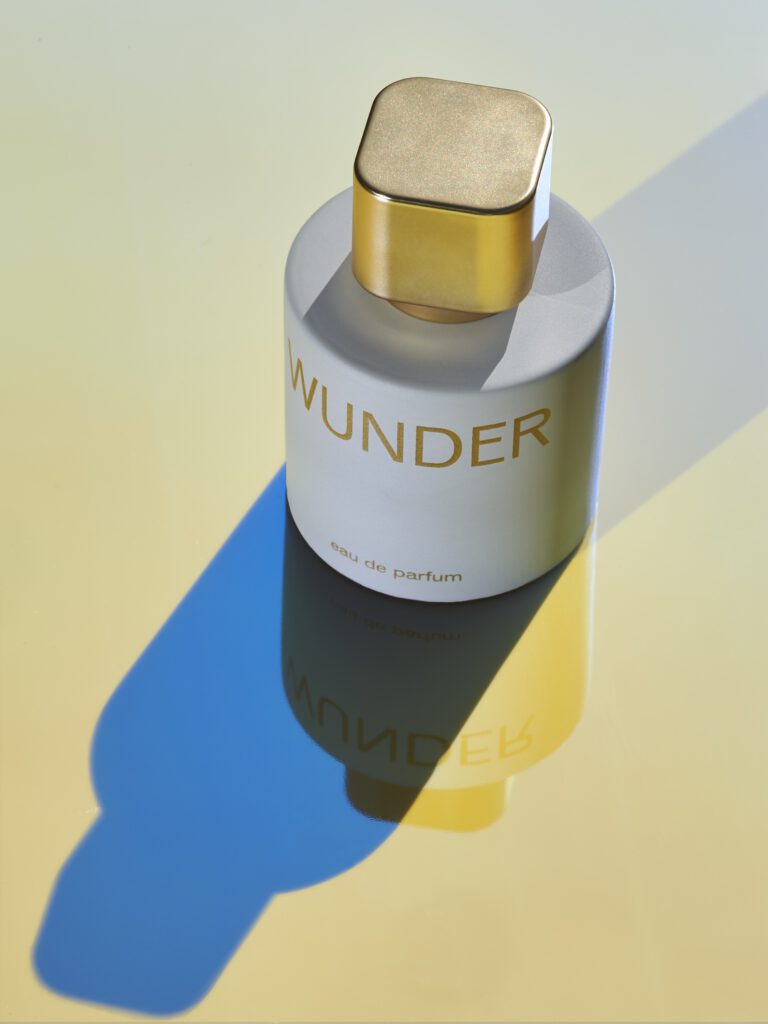
These are only a few examples of how spirituality, neuroscience and self-care can be crystalised into innovative products. Enjoy discovering these new trends, and Sat Nam!
Photos: Annet Teapel / Portrait: Holger Homann
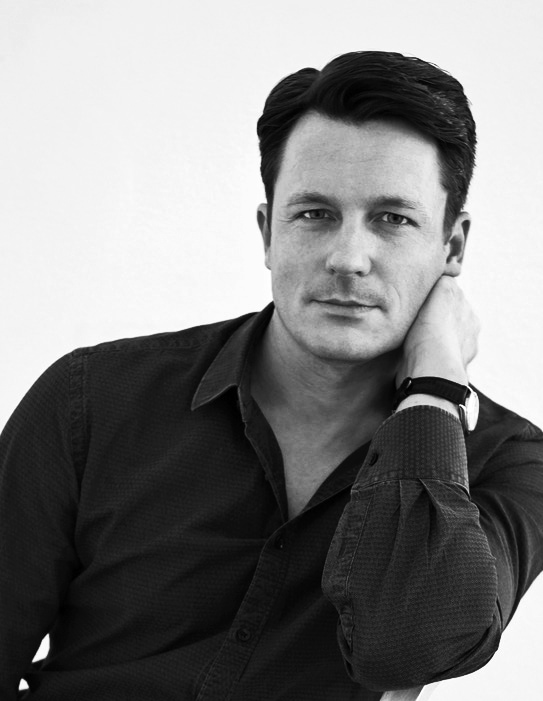
HELDER SUFFENPLAN
is an independent journalist and creative consultant from Berlin, and has had a particular passion for perfumes since he was a child. With his successful 2013 launch of SCENTURY.com – the very first online magazine for perfume storytelling – Helder has become a recognised authority in the global world of fragrance. He has been on the jury for events such as The Arts & Olfaction Awards in Los Angeles and the Prix International du Parfumeur Créateur in Paris. As a writer, he combines his passion topic of fragrances with a range of fields such as contemporary art, popular culture, literature, film and geopolitics.
Photo: Holger Homann
Weitere Kolumnen von Helder Suffenplan >>
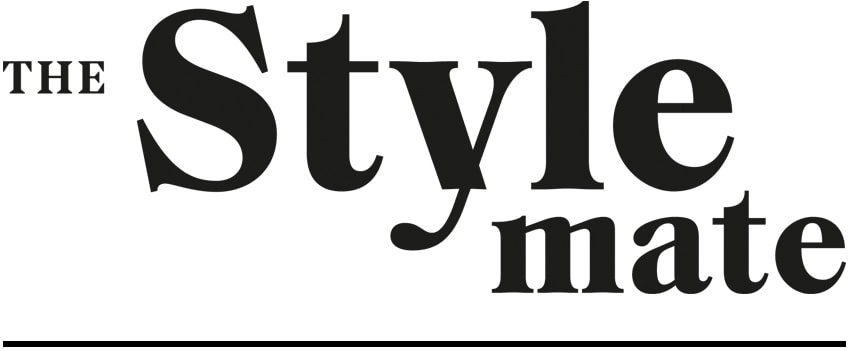
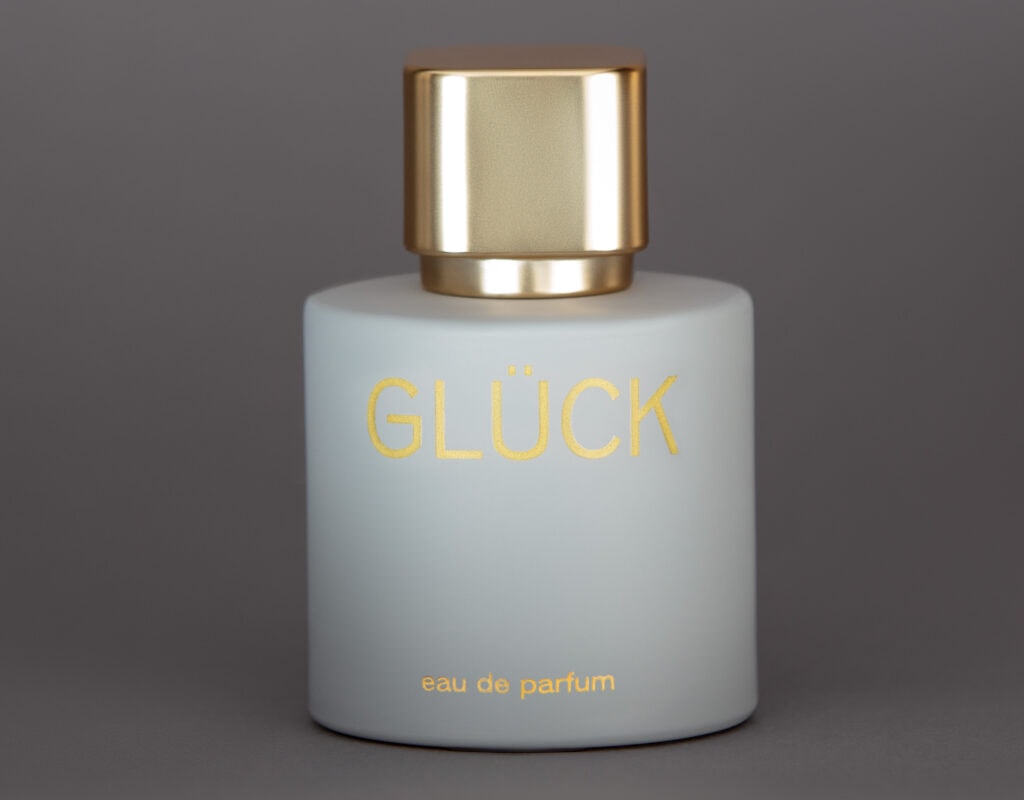
iThere are no comments
Add yours